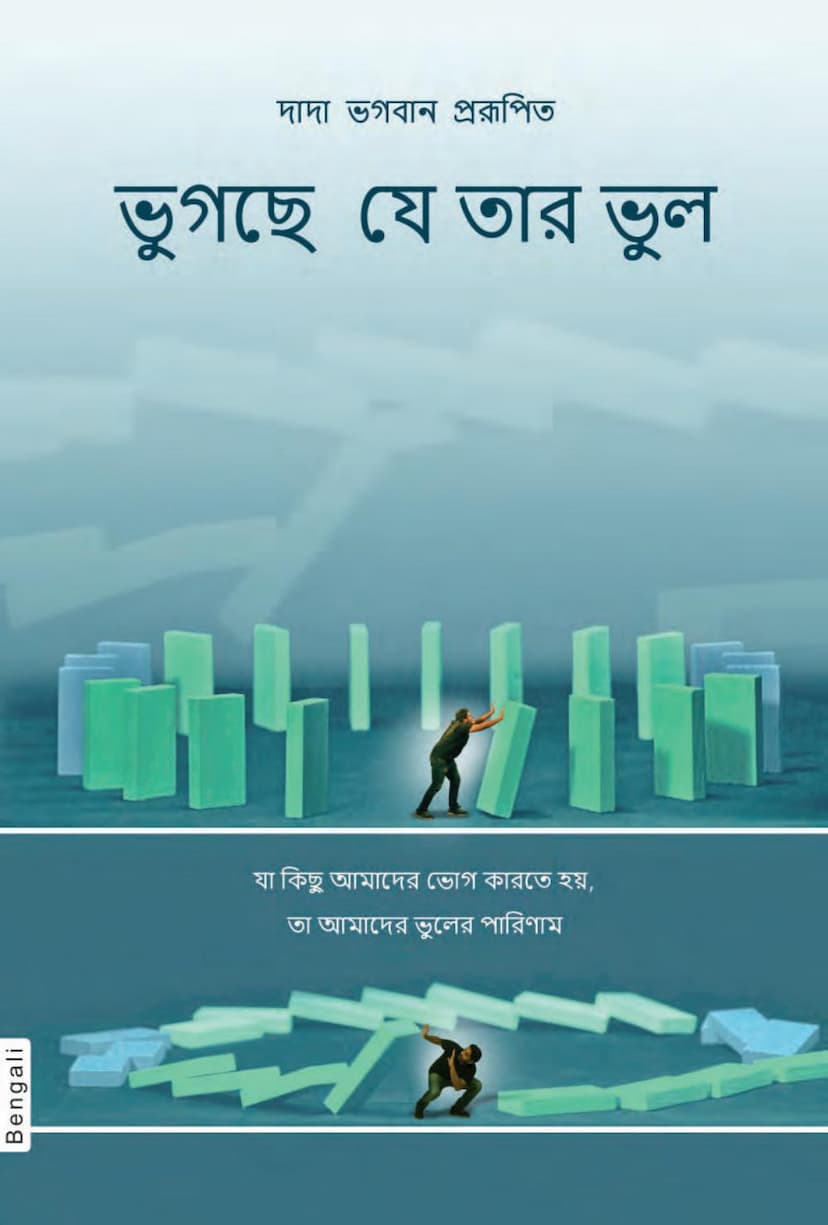The Fault Is Of The Sufferer Bengali
Added to library: September 2, 2025

Summary
This Jain text, "The Fault is of the Sufferer" by Dada Bhagwan, published by Dada Bhagwan Aradhana Trust, is a spiritual discourse that expounds on a fundamental principle of karma and suffering: "He who suffers, it is his fault."
The core message of the book is that all suffering, hardship, and negative experiences are a direct result of one's own past mistakes, actions, and karma. The text clarifies that the "fault" lies not in external circumstances or other people, but within the individual who is experiencing the suffering.
Here's a breakdown of the key themes and concepts presented:
- The Law of Karma: The book strongly emphasizes the unerring and just nature of the cosmic law of karma. It states that the universe operates on a system of absolute justice where every action has a proportionate reaction. There is no injustice in the world; everything happens according to a divine, natural law.
- Identifying the "Fault": The central tenet is to look within when experiencing suffering. Instead of blaming others or external factors, one should introspectionally search for their own past mistakes. The text provides numerous examples and analogies to illustrate this point. For instance, if a teacup breaks in your hand, the fault is yours. If it breaks from your child's hand, the suffering and blame are still ultimately linked to your own past actions that led to this situation.
- The Sufferer is the Doer: The book argues that the person experiencing pain or difficulty is the one who has created the conditions for it through their past deeds. This principle applies universally, whether it's a physical accident, relationship conflict, financial loss, or any form of suffering.
- Beyond External Blame: The text encourages readers to move beyond the habit of finding fault in others. This external blame only perpetuates a cycle of negative karma and suffering. By recognizing one's own fault, one can begin to break free from this cycle.
- The Nature of Justice: The book posits that the natural justice of the universe is not meted out by external judges or human legal systems, but by an inherent, impartial system. The "judge" is within the causality of karma. The suffering itself is the evidence and consequence of one's own fault.
- Solution Lies Within: The ultimate solution to suffering is to understand and internalize this principle. By accepting that "he who suffers, it is his fault," one can cease to create new negative karma, work through existing karma, and ultimately achieve liberation (moksha).
- The Role of "Nimit" (Instrumentality): While external people or events may appear to be the cause of suffering, they are merely instruments or catalysts for the unfolding of one's own karma. The real fault lies with the individual whose past actions have set these events in motion.
- Distinction between Intelligence and Knowledge: The book differentiates between worldly intelligence (buddhi), which leads to emotional reactions and external blame, and pure knowledge (gyan), which leads to detachment, self-realization, and acceptance of one's own fault. Knowledge helps one remain unaffected by external events.
- Practical Application: The text suggests practical ways to implement this understanding. For instance, if a teacup breaks and causes distress, recognizing it as one's own fault alleviates the suffering. Similarly, in difficult relationships, understanding that the other person's actions are a reflection of one's own past karma can bring peace.
- A Path to Liberation: The ultimate promise of this teaching is that by fully grasping and living by the principle "He who suffers, it is his fault," one can indeed achieve liberation from the cycle of suffering and rebirth.
In essence, "The Fault is of the Sufferer" is a profound spiritual guide that offers a radical shift in perspective, empowering individuals to take responsibility for their experiences and find freedom through self-understanding and the acceptance of their own karma.